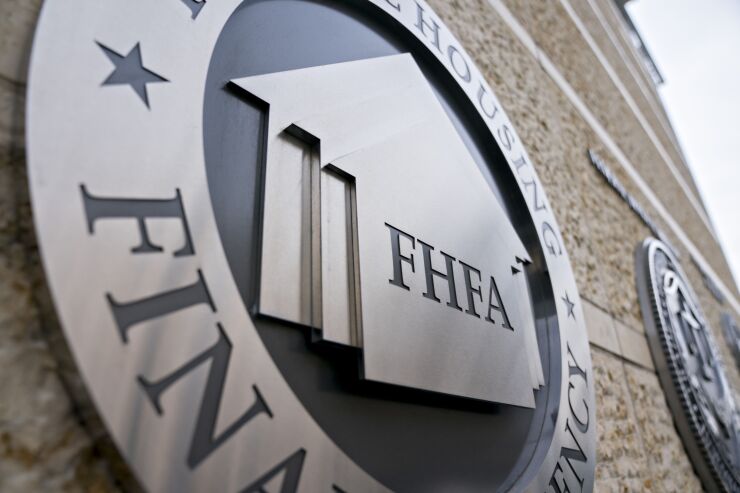
WASHINGTON — Top officials with the Federal Home Loan Bank System told a conference of community bankers Wednesday that they fear the Federal Housing Finance Agency will resort to its supervisory powers to implement some of its policy goals around reforming the Home Loan Bank System.
Ryan Donovan, CEO of the Council of Federal Home Loan Banks, told a group of bankers assembled at the Independent Community Bankers of America Washington Summit Wednesday morning that many of the most durable changes outlined in the report would have to be done either by Congress or through a time-consuming rulemaking process, both of which are unlikely.
"You're dealing with the most dysfunctional Congress in the history of the Republic, and you have a calendar problem," Donovan said, referring to the Federal Housing Finance Agency's perspective on advancing the goals of the report. "We're here on the first day of May of a presidential election year. There is no way, if they started a rulemaking tomorrow, that they would be able to complete it before the election, and the outcome of the election is uncertain. So … it's reasonable to assume they're going to try to do as much as possible through the supervisory process to have an impact."
Federal Housing Finance Agency Deputy Director for Bank Regulation Joshua Stallings said in a statement to American Banker that the agency "continues to work to address recommendations" in last year's report, which "will include ongoing supervision, guidance, and rulemaking."
"Much of this work will entail additional collaboration and communication with stakeholders," Stallings said. "While there are additional recommendations which would require congressional action, the FHFA must ensure the FHLBanks support the entirety of their mission, not only the parts they prefer."
The FHFA issued an
Kirk Malmburg, president and CEO of the Federal Home Loan Bank of Atlanta, thanked ICBA members for bringing up the importance of the Home Loan Bank System to their businesses, and reiterated that the most important potential changes to the system would have to be enacted by Congress.
"As FHFA is weighing in [on the future of the FHLB system], sometimes they forget: Congress set up the Federal Home Loan Bank System," Malmburg said. "Congress said what our mission is. And in our minds, Congress should be where you go back to a lot of these potential changes."
Kris Williams, president and CEO of the Federal Home Loan Bank of Des Moines, said that even without any regulatory changes, the Home Loan Bank System last year contributed 50% more to affordable housing programs, or AHPs. But she said those increases shouldn't be mandated by law or regulation.
"We wanted to do that through voluntary programs as opposed to the regulatory-driven ones," Williams said. "Why? Because, has anybody done an AHP application? They can be a little bit difficult, right? There's a lot of paperwork. Even our down payment programs that help first time homebuyers can be a little arduous at times. So, you know, we wanted to do it through voluntary programs, ones that we knew [were] needed in the district."
The Federal Home Loan Bank System has come under
Winthrop Watson, president and CEO of the Federal Home Loan Bank of Pittsburgh, said too little attention is given to the role the Home Loan banks played in ensuring that many more banks didn't also fail at the same time as Silicon Valley Bank and Signature Bank last March. Enhanced liquidity enabled banks to withstand rapid redemptions of deposits at a time when customers were concerned about a full-blown banking crisis, he said.
"We made a huge impact and probably saved a number of banks from failing on that same day," Watson said. "If you wanted to figure out how to have a very efficient and robust liquidity structure, you might design the Home Loan Bank System as they are today, to be able to provide exactly that."





